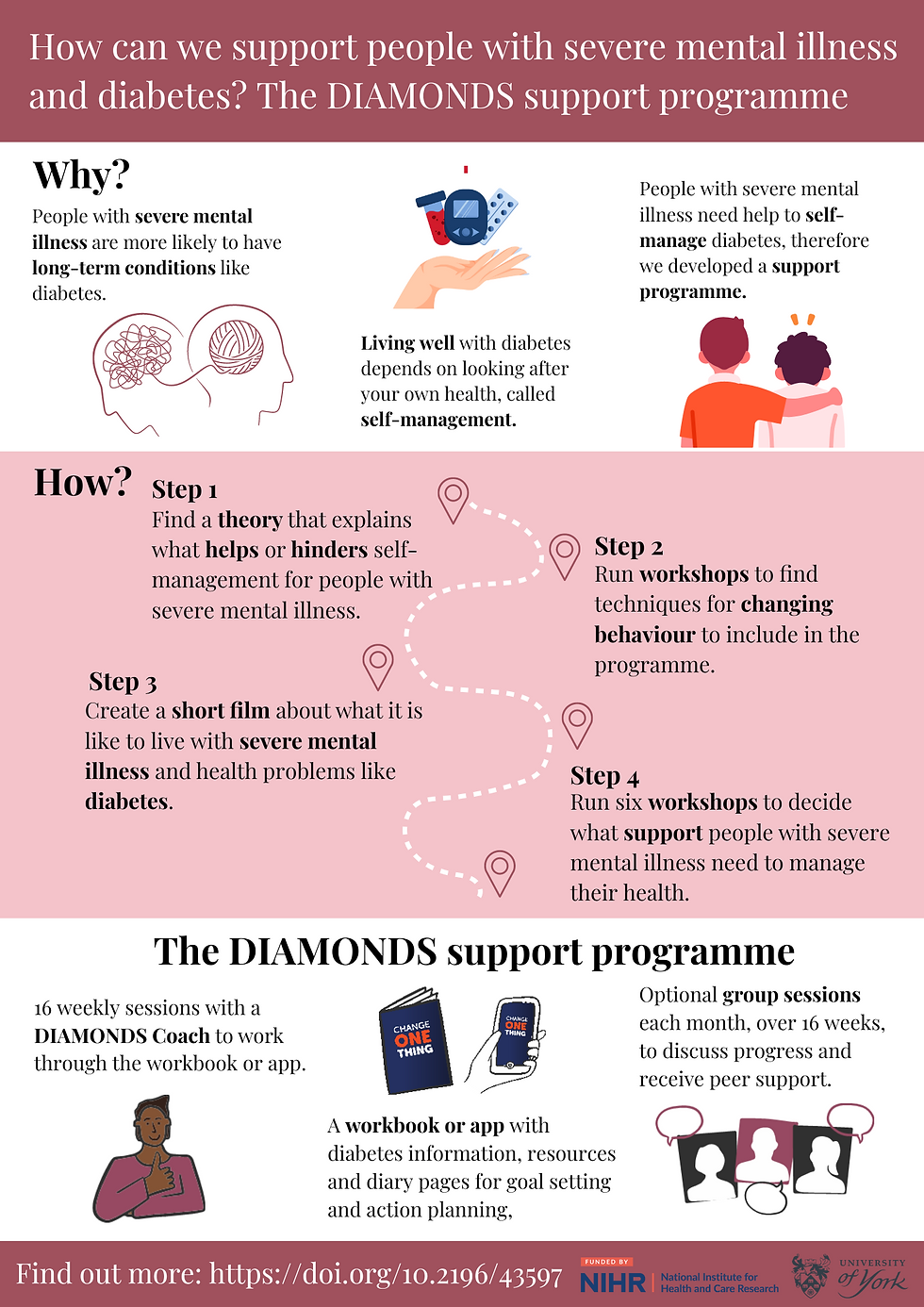How can we support people with severe mental illness and diabetes? The DIAMONDS support programme.
- ClaireCarswell

- Jul 24, 2023
- 3 min read
Updated: Aug 8, 2023

People living with a severe mental illness (SMI), like schizophrenia, bipolar disorder, or psychosis, often have more physical health problems than people without mental illness. For example, people with SMI are 2 to 3 more likely to have type 2 diabetes.
The symptoms of SMI and the medications needed to manage it can make it difficult for people with SMI to look after their physical health and wellbeing. Diabetes needs to be managed by the individual through lifestyle changes such as physical activity or a healthy diet. This is called self-management. Self-management can be challenging for people with SMI.
To make sure that people with SMI and diabetes receive the right help to self-manage their health, a support programme is needed that works for them. At the moment, there is no such programme in the UK.
The DIAMONDS research team did a study with people with lived experience of SMI and diabetes, their family carers, and healthcare professionals to design a programme to support diabetes self-management for people with SMI.
This study involved four steps:
STEP 1: We worked with other researchers to understand what theory should be the basis for the new programme. Together, we looked at “Mechanisms of Action” which is a theory about how things like a person’s environment or their beliefs can help (or hinder) them to change the way they act. We made a list of mechanisms from earlier research and decided which ones were most important.
STEP 2: We ran workshops with other researchers and healthcare professionals to decide which mechanisms we would want to include in the new programme. Each mechanism is connected to a behaviour change technique, a specific action that a person can do to help them change their behaviour. For example, setting a specific goal to walk for at least 10 minutes a day can make it easier to be more physically active. Setting the goal is what is called a behaviour change technique.
STEP 3: Together with a design agency, we used research evidence to develop a short film about what it is like to live with SMI and physical health problems, like diabetes.
STEP 4: Everyone worked together, including people with lived experience, their carers and healthcare workers to decide what support people with SMI need most to help them manage their physical health. We ran six workshops where we developed our ideas and came up with the first version of the new support programme called DIAMONDS.
This programme included:
A pen-and-paper workbook with diabetes information, resources and diary pages for goal setting and action planning, i.e., making plans on how to achieve that goal.
A digital app which can be used instead of the workbook.
Weekly sessions with a DIAMONDS Coach to work through the workbook or app and discuss which goals to set and how to reach them.
Optional monthly peer-group sessions.
As part of the programme, people with SMI and diabetes meet with their DIAMONDS Coach for 16 weeks to work together to make lifestyle changes that will help the person with SMI self-manage their diabetes. They can record their plans and track their progress in the workbook or app.
The next step is to test if people with SMI and diabetes, their carers, and the Coaches like the new programme. After that, we will run a study to test if the new programme can improve people’s health.
You can read the full article here at the Journal of Medical Internet Research
Listen to the audio version of this summary in the file below:



Comments